No legal advice or suggestions regarding the ownership of axolotls in California or elsewhere are made in this article. It is crucial and imperative that you conduct your own research, draw your own conclusions, and get in touch with local authorities for more information about keeping pets in your state and with specific exotic species.
Axolotls are a breed of salamander that resides in water. This is an exotic species of aquarium pet, and is a beautiful addition to any aquarium. One thing you should consider before getting an axolotl in California is whether or not they are considered to be illegal animals there.
California has some of the strictest animal regulations in the U.S, and it is indeed true that axolotls are illegal to own in the state of California, along with many other states in the country. One of the reasons behind this law, among others, is that this species is listed as critically endangered.
Are you a California resident who wants to own an axolotl nonetheless? In this article, we’ll take a deeper look into why exactly axolotls are illegal to own, along with the consequences of owning one.
Why are Axolotls illegal to own in California (as well as some other states)?
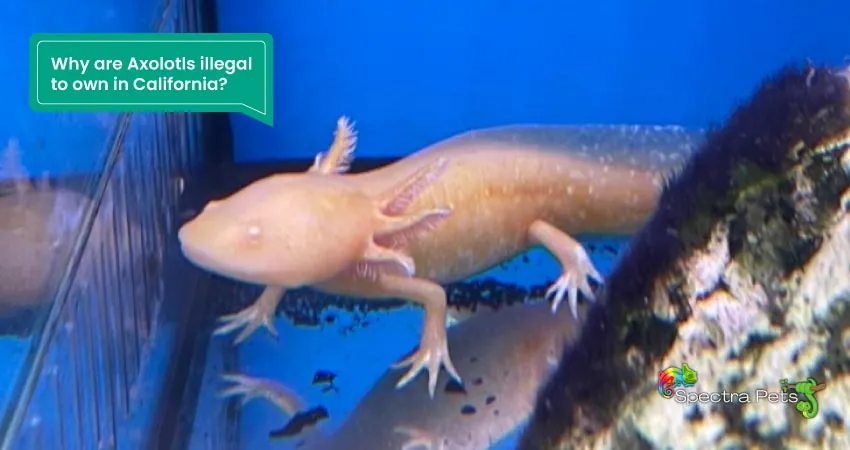
It can be frustrating for people living in California, as well as other states where the ban on keeping axolotls as pets is active. You still need to understand that these laws have been implemented for accurate reasons.
You might assume that the axolotl’s “critically endangered” status is the main justification for this ban. This is indeed a cause, but it’s not the main one. Axolotls can be bred for generations if they are given the right care.
Axolotls can be bred for decades before they start to diverge from wild axolotls. They will experience significant behavioral and genetic changes to the point where they can turn into a completely different species. This is why you can’t breed and release axolotls in the wild to increase their numbers.
Axolotls cannot be legally owned because it has been determined that if they were ever released into the wild in large numbers, they would pose a serious threat to the environment. This is the major reason behind their lawful ban. This law has been implemented in order to protect against major damage to the local ecosystem.
If someone mass-breeds axolotls and releases them in the wild in California, their large number will potentially outrival other scrambled salamanders like the California Tiger Salamander and the Eastern Tiger Salamander.
Not just axolotls are subject to this prohibition. The same reason also forbids the possession of other ambystomas like Tiger Salamanders, Mole Salamanders, and Spotted Salamanders.
What states are Axolotls illegal in?
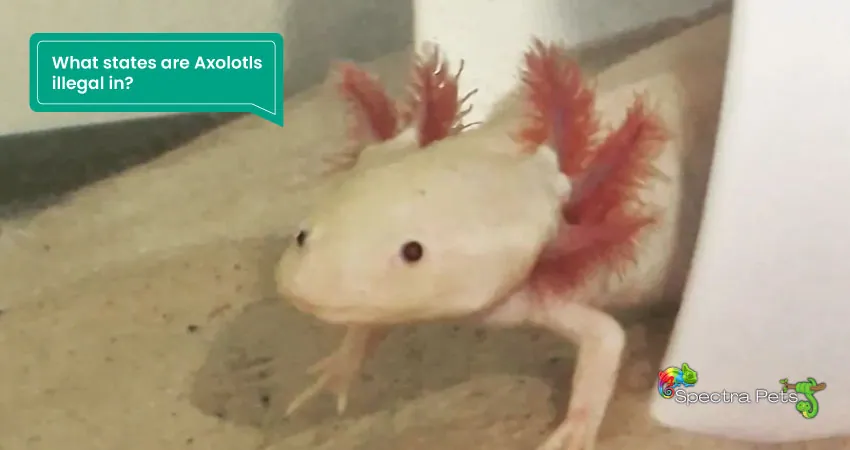
Axolotls are banned from being kept as pets in a lot of states in the U.S, including Maine, California, D.C, Virginia, and New Jersey. You can own one in Hawaii and New Jersey. However, you’ll require a permit from the authorities.
Are Axolotls endangered in California?
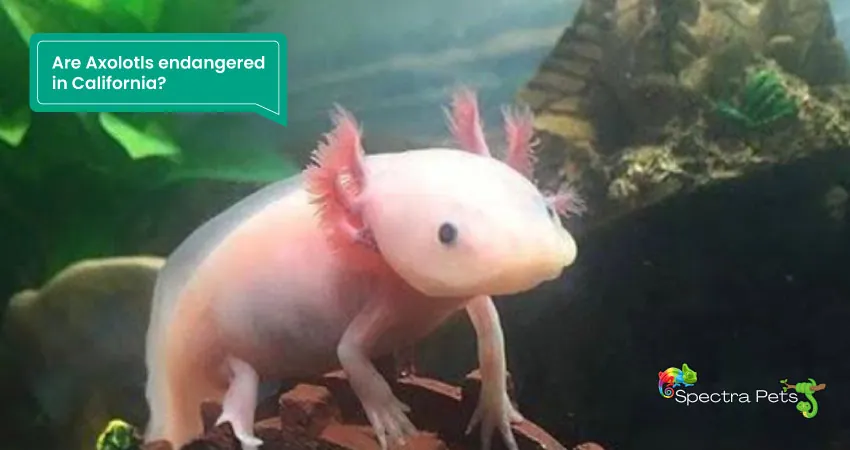
In California, axolotls are classified as “critically endangered.” Their natural habitat is less than seven miles in size, and the quality of their surroundings is atrocious. As a result, their population is in decline.
What happens if you get caught with an Axolotl in California?
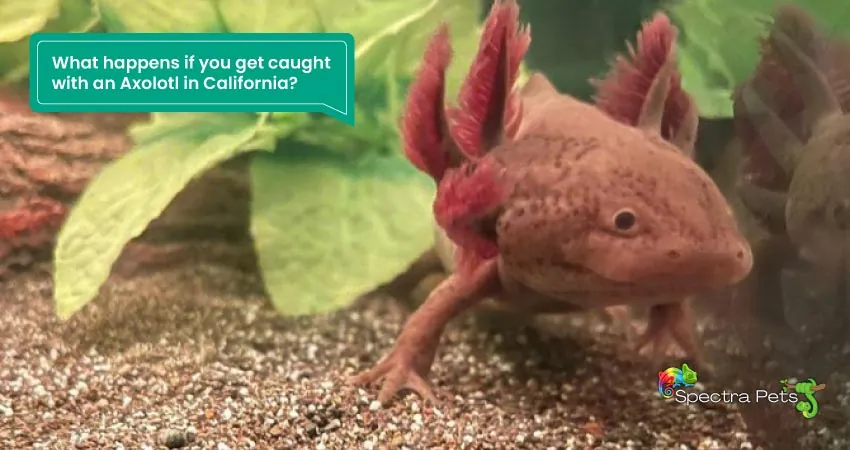
Owning an axolotl or any other ambystoma species is a violation of the law in California. Consequences may be followed by prosecution. The criminal will be penalized under the California Fish and Game code with a fine of a sum between $500 and $10,000.
In some cases, the offender may even be imprisoned for up to 6 months. The criminal must also bear the additional costs of removal, containment, and care of the animal.
How do I get an Axolotl in California?
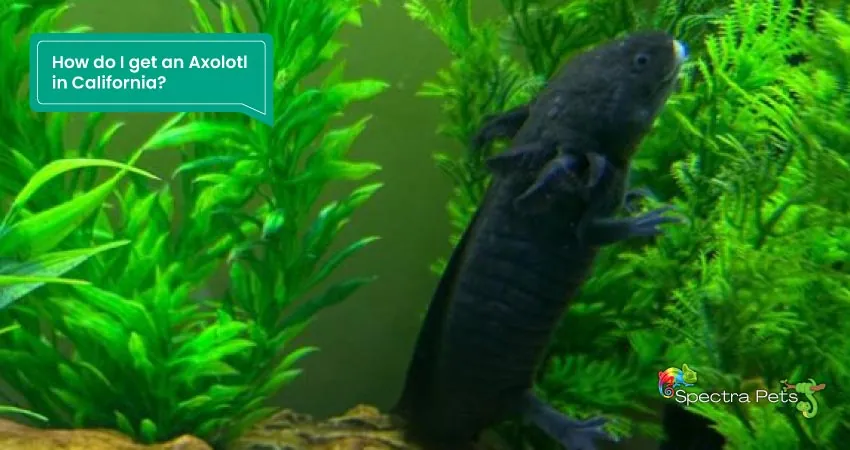
Even after knowing all the laws and consequences of owning an axolotl in California, if you still insist on getting one for yourself, then you need to apply for a permit from the authorities.
You must persuade the authorities through your application that you will ensure the amphibian’s safety, will keep it properly contained, and won’t allow it to interact with the local wildlife. Authorities will frequently check on the axolotl, and it will require regular veterinary examinations.
And despite all this, this permit is not granted to everyone. Even if you manage to get one, it will be very expensive.
Finishing Up
Now that you know the law and the consequences of owning an axolotl in California, are you still thinking about getting one? Let us know in the comments below.
